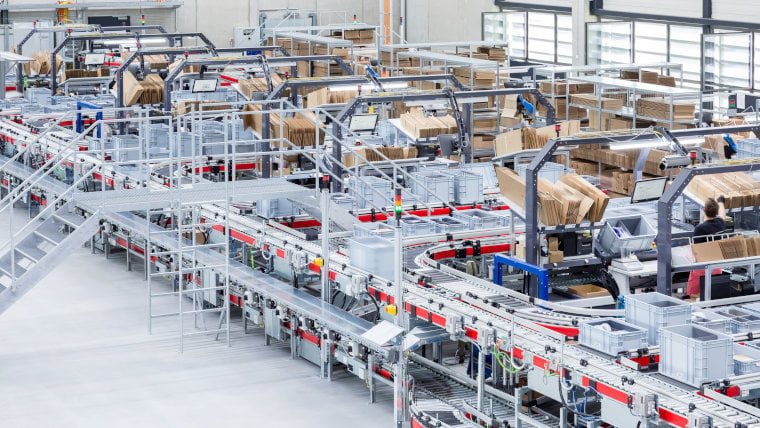TGW Logistics: Redefining Warehouse Intelligence by Analyzing Massive Volumes of Different Types of Data in Real-Time
TGW Logistics Group is one of the leading international suppliers of material handling solutions. For more than 50 years, the Austrian specialist has implemented automated systems for its international customers, including brands from A as in Adidas to Z as in Zalando. As systems integrator, TGW plans, produces and implements complex logistics centres, from mechatronic products and robots to control systems and software.
TGW Logistics Group has subsidiaries in Europe, China and the US and more than 4,400 employees worldwide. In the 2022/2023 business year, the company generated a total turnover of 955 million euros.

 © TGW
© TGW
Use Case
Accelerate aggregation and access to large volumes of diverse data collected in real-time from warehouse systems around the world.
Challenge
- Data is in many different formats spread across diverse systems worldwide
- Classical and NoSQL databases cannot handle the volume of unstructured and object data
- Data siloes are difficult to combine and query, limiting analytics and modeling capabilities
Outcomes with CrateDB
- Increased database performance for high data volumes, handling 100,000+ messages every few seconds
- Improved predictive modeling accuracy, enabling AI teams to ingest and query full datasets from warehouses worldwide
- Provide customers with more visibility and insights to optimize warehouse operations
- Scale quickly and easily to handle TGW’s ongoing growth, automatically rebalancing data as new nodes are added to the cluster
- Strengthen TGW’s competitive advantage by using data-driven insights to provide more cost-effective customer offers

Faster Fixes, Better Outcomes: How AI Empowers Operators on the Shop Floor
Faster Fixes, Better Outcomes: How AI Empowers Operators on the Shop Floor
Data Innovation Summit 2024
Data Innovation Summit 2024
Digital Twins and Generative AI: How TGW Revolutionizes Warehouse Operations with CrateDB's Combination of Time Series, Documents, and Vectors
In this talk, TGW Logistics showcases their use of CrateDB to optimize distribution centers. With up to half a million items handled daily, they focus on automation and data-driven decisions.